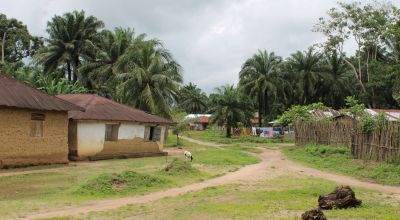
Read our 2024 annual report

Knowledge Hub
Over nine million people worldwide living with HIV still didn't have access to life-changing antiretroviral treatment last year.
This comes as 39 million people globally were living with HIV at the end of 2022 and 630,000 people died from AIDS-related illnesses last year. 1.3 million people became newly-infected with HIV in 2022, a technically preventable infectious disease.
Today we mark the 35th annual World AIDS Day, first organised in 1988 by UNAIDS to maximise education and publicity on the now global HIV and AIDS epidemic. The theme was ‘Communication’. The red ribbon became the global symbol for solidarity with HIV-positive people and those living with AIDS.
Since the onset of the epidemic, 85.6 million people have become infected with HIV and 40.4 million people have died from AIDS-related illnesses. New HIV infections have been reduced by 59% since the peak in 1995, when antiretroviral therapy became available.
At the end of December 2022, 29.8 million people (76%) of all people living with HIV) were accessing antiretroviral therapy, up from 7.7 million in 2010. However, millions of people living with HIV still do not have access to antiretroviral treatment.
World AIDS Day 2023
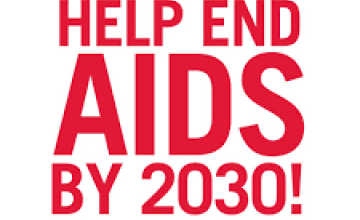
The UNAIDS theme for this year is ‘Let Communities Lead.’
The world can end AIDS, with communities leading the way. Organisations of communities living with, at risk of, or affected by HIV are the frontline of progress in the HIV response.
As Concern Worldwide has learned from working with local HIV support organisations, people living with HIV (PLHIV) and affected communities, ‘the solution lies within’.
Concern has been responding to the global HIV and AIDS epidemic in countries we have operated in since 1987. We employed a community-based approach, working with existing women’s groups and partnering with the Medical Missionaries of Mary on Home Care outreach for people who were dying from AIDS.
Thankfully, the situation has improved globally with the introduction of antiretroviral medications. Treatment was disrupted during COVID-19 and even today, vulnerable people do not always have access to these life-saving medications.
Gender and HIV
Gender and economic dynamics are important, and in sub-Saharan Africa, adolescent girls and young women (aged 15-24 years) were three times more likely to become infected with HIV than their male peers in 2022 .
Every week, 4,000 adolescent females (aged 15-24) became infected with HIV globally in 2022. 3,100 of these infections occurred in Sub-Saharan Africa.
How Concern is working with communities in response to HIV and AIDS
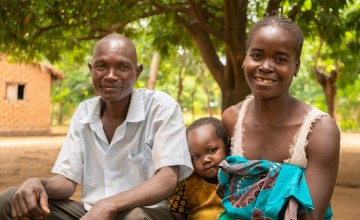
Malawi has the highest rate of HIV prevalence in adults among the countries where Concern operates at 7.1% - with 8.9% of women and 5.2% of men diagnosed with HIV. We have been working with Governments in rural areas to revive community support groups, who have conducted awareness and education sessions on HIV and AIDS.
The groups also work to increase awareness about women’s sexual health rights and engage men and boys on their responsibilities. These issues are also raised within the Umodzi Household and in the community curriculums to facilitate mind-set change and more male engagement on Sexual Reproductive Health and Rights (SRHR).
There was integration of awareness raising and education during the 2022 cholera outbreak in Malawi, which provided messaging alongside HIV and AIDS and COVID-19 prevention and response work.
Training of officers at district level also facilitated the establishment of HIV and AIDS workplace committees.
At a national level in Malawi, Concern engaged in the Protection Cluster to promote Youth Friendly Health Services, in response to reports of a rise in new HIV and AIDS cases amongst youth. We also provided key funding to community-based organisations (CBOs) to support their important ongoing response to HIV and AIDS.
In Kenya, HIV is streamlined under the health and nutrition programme. This is achieved through continued support to community health workers in undertaking household level messaging including prevention and management of HIV and AIDS within target communities.
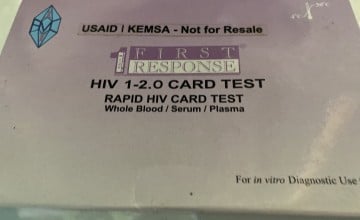
Community volunteers played a vital role in increasing awareness about HIV and AIDS in Bangladesh. Knowledge on HIV and AIDS increased, with 83% of men and women able to correctly identify the major ways of preventing sexually transmitted infections (STIs) and HIV, and 96% of programme participants are now knowledgeable on the causes of HIV and AIDS.
Concern-supported Youth Peace Clubs in Burundi and Rwanda received life skills trainings on topics including gender equality, sexual and reproductive health rights, HIV and AIDS prevention and hygiene. These trainings contribute to holistic development of the youth and increase their awareness of their role in the advancement of society.
Households identified for cash transfers in the Kirundo and Karusi Provinces in Burundi received education messages on health, nutrition and hygiene. A session on voluntary HIV testing was also developed for family well-being.
Participants in Burundi will receive further support through care groups and husbands' schools, where HIV and AIDS information sessions will continue to be delivered.
Medical support is provided in Chad's Lake Province to survivors of gender-based violence (GBV), referral for follow-up treatment and post exposure prophylaxis (PEP) kits to limit the risk of unplanned pregnancy, HIV and other sexually transmitted infections (STIs).
146 health agents were also trained in Chad on GBV topics to provide quality care to survivors, while 126 Community Leaders participated in discussions on the importance of raising and supporting activities to prevent GBV and in the safe referral of affected women.
Among the new objectives of Concern’s Democratic Republic of Congo’s (DRC) Gender and Protection strategy 2022-2026 has been to start working with adolescents and adults on integrated HIV and sexual and reproductive health and rights as part of their gender transformative approach.
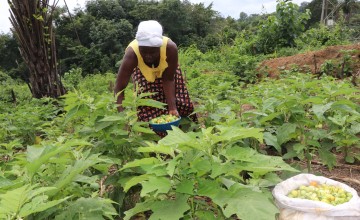
The Accelerating Nutrition and Sustainable Agriculture and Resource Management (ANSARM) project in Liberia works to increase awareness about HIV and AIDS via its 'we are one' platform. ANSARM, which is funded by Irish Aid, has seen a notable increase in awareness about the diseases among participants.
The team also worked closely with the Nutrition Division in the Ministry of Health and the National AIDS Control Program to develop a plan for rollout and dissemination of education messages on HIV and AIDS throughout Liberia.
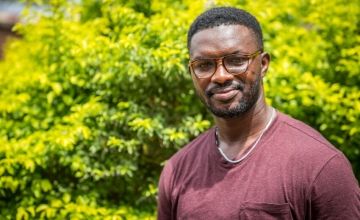
Our teams in Sierra Leone also work to increase awareness among young people about the transmission and prevention of STIs, including HIV. Concern responds to HIV and AIDS within our health systems strengthening work and related health and education programmes.
As part of the SLiSL (Saving Lives in Sierra Leone) mentorship work, health care workers are encouraged to ensure that all pregnant women are attending antenatal care appointments. As per the WHO global standards, this includes testing for HIV and initiation of Prevention of Mother-to-Child Transmission (PMTCT) for HIV-positive mothers, with follow-up treatment and psychosocial support.
HIV continues to be a public health priority in South Sudan, with estimated prevalence of 1.9% among adults aged 15-49 years (2022 UNAIDS estimates). Social stigma due to cultural practices, myths and limited knowledge continue to hinder community access to testing and referrals, especially in Northern Bahr el Ghazal and Unity State. Therefore, more efforts are required to integrate HIV and AIDS across all health and nutrition facilities, which Concern is supporting in all programmes.
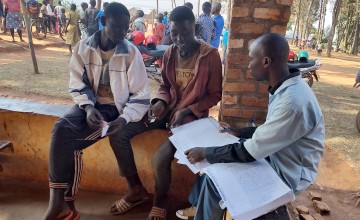
Our team in Sudan is supporting government-run health facilities with integrated HIV and AIDS prevention and treatment services in three hospitals. We support these existing facilities with incentives, top-up payments for underpaid facility staff, and the provision of supplies and materials.
Our team in Türkiye is increasing awareness and education about HIV and AIDS to prevent stigma and discrimination. One of the initiatives introduced is to increase the number of reproductive health sessions about HIV transmission and prevention.
The Sustainable Development Goals
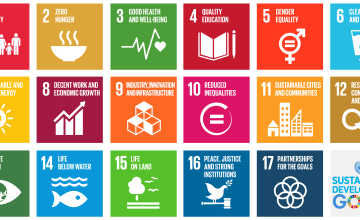
Gender equality is one of the most important steps to ending extreme poverty. The most vulnerable women and girls where Concern is working deserve to be heard and seen. It is critical to deliver on Sustainable Development Goals (SDGs) 3 and 5 by 2030.
As World Aids Day falls within the annual ‘16 Days of Activism against Gender-Based Violence’ (November 25 - December 10), many ceremonies and events highlight the risks of HIV for women in particular.
UNAIDS reminds us: "Every minute, a life is lost to AIDS. Every week, 4000 girls and young women become infected with HIV, and out of the 39 million people living with HIV, 9.2 million do not have access to lifesaving treatment. There is a Path that Ends AIDS and AIDS can be ended by 2030, but only if communities lead."
UNAIDS is calling for: Communities’ leadership roles to be made core in all HIV plans and programmes; Communities’ leadership roles to be fully and reliably funded; And for barriers to communities’ leadership roles to be removed.
We can — and must — end AIDS as a public health threat by 2030.
Reaching this goal means heeding this year’s theme: Let Communities Lead.
Click the button below to hear Breda Gahan's interview with Darren J. Prior on Near FM to mark World AIDS Day 2023.
How you can help
Buy a gift
With an extensive range of alternative gifts, we have something to suit everybody.
Leave a gift in your will
Leave the world a better place with a life-changing legacy.
Become a corporate supporter
We partner with a range of organisations that share our passion and the results have been fantastic.
Volunteer with Concern
There are lots of opportunities for you to get involved with Concern as a volunteer.
Fundraise for Concern
From mountain trekking to marathon running, cake sales to table quizzes, there are lots of ways you can support our work.
Donate now
Give a once-off, or a monthly, donation today.
Our impact in 2024
people reached through our emergency response
people reached through our health interventions
people reached through our livelihoods programmes


